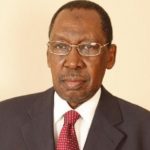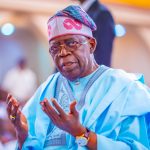Economy
Elevated Crude Inventories Weaken Oil Prices

By Adedapo Adesanya
Oil prices eased on Wednesday after government data showed crude stockpiles in the United States rose unexpectedly last week, prompting investor concerns of excess supplies.
Brent crude futures lost 54 cents or 0.81 per cent to sell for $66.09 per barrel and the US West Texas Intermediate (WTI) crude futures slipped by 52 cents or 0.82 per cent to $63.15 a barrel.
According to new data from the US Energy Information Administration released on Wednesday, US crude oil inventories saw an increase of 4 million barrels to 441.8 million barrels during the week ending May 9.
Crude oil prices were trading down before the crude data release by the US Energy Information Administration. On Tuesday, the American Petroleum Institute (API) reported a surprise build in US crude oil inventories of 4.287 million barrels in U.S. crude oil inventories with draws in gasoline and distillate stocks.
More worries came as the Organisation of the Petroleum Exporting Countries and allied producers (OPEC+) have started increasing supply to the market.
However, in the last month, combined crude oil production from the 22-member group dropped by 106,000 barrels per day in April compared to March, despite the pledge of the eight OPEC+ producers who are withholding supply to begin easing their cuts.
OPEC+ producers Saudi Arabia, Russia, Iraq, UAE, Kuwait, Kazakhstan, Algeria, and Oman decided to begin raising production in April, for the first time since 2022.
The figures in OPEC’s Monthly Oil Market Report (MOMR) published today suggest that the eight OPEC+ producers added fewer than 30,000 barrels per day to their collective supply in April, versus plans to add 138,000 barrels per day.
Saudi Arabia, OPEC’s top producer and leader of the OPEC+ pact, raised its production by 49,000 barrels per day compared to March and pumped 9 million barrels per day in April, according to OPEC’s secondary sources.
Declines in the sanctioned Iran and Venezuela, as well as in Nigeria, which frequently faces force majeure circumstances, offset the Saudi hike.
Total OPEC production (excluding allies) dropped by 62,000 barrels per day in April compared to March.
OPEC trimmed its forecast for growth in oil supply from the US and other producers outside the wider OPEC+ group this year.
It said output will rise by about 800,000 barrels per day in 2025, OPEC said in a monthly report, down from last month’s forecast of 900,000 barrels per day.
Also, a stronger the US Dollar weighed on prices on Wednesday. A stronger greenback makes oil traded in the American currency more expensive for investors holding other currencies, hurting demand.
Economy
Nigeria-US Trade Value Hits $13bn

Trade between Nigeria and the United States in goods and services in 2024 stood at approximately $13 billion, according to the US Ambassador to Nigeria, Mr David Greene Mills.
He made the disclosure yesterday in his address at the Lagos Business School, where he disclosed that US’ foreign direct investment also climbed to $6.5 billion, a 5.5 per cent increase from the previous year, which highlighted renewed investor confidence and a shared commitment to long-term economic engagement.
At the event themed Toward a Robust US-Nigeria Commercial and Investment Partnership, Mr Mills articulated a forward-looking vision built on private sector dynamism, regulatory reform, and strategic cooperation.
The Ambassador praised the Lagos Business School for its role in advancing intellectual and entrepreneurial excellence, highlighting its strategic relocation from Victoria Island to the Lekki corridor—a move he described as visionary.
With his recent visits to the Lagos Free Zone and American companies in Alaro City, Mr Mills pointed to the growing footprint of US enterprises in Nigeria with firms such as Kellogg’s, Colgate-Palmolive, and Caterpillar driving industrial innovation and bilateral trade.
At the heart of his message was the US State Department’s Commercial Diplomacy Strategy for Sub-Saharan Africa, launched earlier this year at the Africa CEO Forum in Abidjan. This bold strategy marks a pivot from aid-based models to trade-led development, placing economic growth and private sector partnerships at the core of US foreign policy on the continent.
Mr Mills emphasized that Nigeria, as Africa’s most populous nation and the second-largest U.S. trading partner in the region, stands at the center of this strategic shift.
He further highlighted the vibrant people-to-people connections between the two countries, noting that over 20,000 Nigerian students are currently studying in the US—more than from any other African country.
In addition, the Nigerian diaspora in the United States, numbering over 750,000, represents the largest African immigrant community and plays a key role in strengthening cross-border economic and cultural bonds.
To consolidate these ties, Mr Mills announced the upcoming formal launch of the US-Nigeria Commercial and Investment Partnership (CIP)—a five-year bilateral agreement focused on agriculture, digital innovation, and infrastructure development.
The initiative will bring together policymakers and business leaders from both countries to resolve longstanding trade bottlenecks and promote a more predictable regulatory environment.
The Ambassador also praised the efforts of the interagency US Mission team, which includes officials from the Departments of Commerce and Agriculture, the Development Finance Corporation, and other key institutions. In 2024 alone, this team facilitated over 7,000 business-to-business meetings and organized high-level trade missions aimed at unlocking new market opportunities and advancing U.S. commercial interests in Nigeria.
With more than 80 American companies already operating in Nigeria and U.S. venture capital responsible for over 60 percent of all startup funding in the country, the impact of American investment is increasingly visible. Ambassador Mills pointed to successful ventures like Flutterwave, Andela, and Esusu as powerful examples of how education, innovation, and transnational collaboration are shaping a new narrative for African entrepreneurship.
Concluding his remarks, Mr Mills called on American businesses to explore new opportunities in Nigeria and urged Nigerian policymakers to enact reforms that encourage investment and innovation. He challenged young Nigerians to embrace their role in driving economic transformation with bold thinking and a global mindset.
“The United States is committed to strengthening our trade relationship,” he said, “and continuing to work with Nigeria to unlock the full potential of our commercial partnership for the benefit of the people of both our nations.”
Economy
Positive Jobs Report, US-China Talks Lift Crude Oil Market

By Adedapo Adesanya
The crude oil market went up by more than $1 on Friday after a favourable jobs report in the United States and resumed trade talks between the US and China.
The price of Brent crude increased by $1.13 or 1.73 per cent to $66.47 a barrel and the US West Texas Intermediate (WTI) crude finished at $64.58 per barrel, up by $1.21 or 1.91 per cent.
In the week, crude oil posted its first weekly gain in three weeks as Brent advanced by 2.75 per cent and WTI improved by 4.9 per cent.
The US Labor Department’s monthly employment report showed the unemployment rate held steady at 4.2 per cent last month.
Employers added 139,000 jobs, which combined with downward revisions to prior months’ estimates showed a cooling in labor demand but nothing abrupt; by comparison, monthly job gains averaged 160,000 last year.
US President Donald Trump and President Xi Jinping of China confronted weeks of brewing trade tensions and a battle over critical minerals in a rare leader-to-leader call on Thursday.
China said the trade talks between the two leaders took place at the US’ request on Thursday.
President Trump said the call had led to a “very positive conclusion”, adding the US was “in very good shape with China and the trade deal”.
In another sign of easing tensions over the issue, China has granted temporary export licenses to rare-earth suppliers of the top three US automakers, two sources familiar with the matter said.
The US president’s top aides are set to meet their Chinese counterparts in London on Monday for further talks.
This development raises hopes for growth in the world’s two largest economies, supporting the markets.
The crude market also continues to tap into moves by the Organisation of the Petroleum Exporting Countries and allies (OPEC+) agreement to ramp up output by a previously announced 411,000 barrels per day in July.
The group rejected a Saudi recommendation for a bigger output hike, part of a broader strategy to win back market share for OPEC+.
The US oil and gas rig count, an early indicator of future output, fell by four to 559 in the week to June 6, the lowest since November 2021, energy services firm Baker Hughes said on Friday.
Economy
Nigeria’s Unlisted Securities Market Jumps 1.42%

By Adedapo Adesanya
The last trading day of this week at the NASD Over-the-Counter (OTC) Securities Exchange closed on a positive note with a 1.42 per cent appreciation on Thursday, June 5.
The unlisted securities market extended its winning streak to four this week, with its total value growing by N67.29 billion to N1.995 trillion from the N1.927 trillion quoted at the preceding session.
In the same vein, the NASD Unlisted Security Index (NSI) was up by 46.62 points during the session to finish at 3,388.81 points, in contrast to the 3,292.19 points it ended at midweek.
Yesterday, the price of Okitipupa Plc increased by N22.00 to close at N242.00 per share compared with the previous day’s N220.00 per share, Nipco Plc grew by N19.97 to close at N219.77 per unit compared with Wednesday’s value of N199.80 per unit, FrieslandCampina Wamco Nigeria Plc rose by N6.19 to N79.45 per share from N73.26 per share, and Geo-Fluids Plc jumped by 12 Kobo to close at N2.90 per unit, in contrast to Wednesday’s closing price of N2.78 per unit.
The volume of securities traded by investors during the session soared by 36.7 per cent to 594,423 units from the 434,892 units traded a day earlier, the value of securities went up by 62.1 per cent to N29.9 million from N18.5 million, and the number of deals climbed by 69.7 per cent to 56 deals from 33 deals.
When trading activities ended for the day, Impresit Bakolori Plc was the most traded equity by volume (year-to-date) with 536.9 million units worth N524.8 million, the second place was occupied by Air Liquide Plc with 507.2 million units sold for N4.2 billion, and the third spot was grabbed by Geo-Fluids Plc after exchanging 268.3 million units valued at N475.3 million.
The most active stock by value (year-to-date) remained Okitipupa Plc with 153.7 million units worth N4.9 billion, followed by Air Liquide Plc with 507.2 million units valued at N4.2 billion, and FrieslandCampina Wamco Nigeria Plc with 38.8 million units sold for N1.6 billion.
Trading activities will not happen at the NASD today and next Monday due to the public holidays declared by the federal government for Sallah.
-

 Feature/OPED5 years ago
Feature/OPED5 years agoDavos was Different this year
-
Travel/Tourism9 years ago
Lagos Seals Western Lodge Hotel In Ikorodu
-

 Showbiz2 years ago
Showbiz2 years agoEstranged Lover Releases Videos of Empress Njamah Bathing
-

 Banking7 years ago
Banking7 years agoSort Codes of GTBank Branches in Nigeria
-

 Economy2 years ago
Economy2 years agoSubsidy Removal: CNG at N130 Per Litre Cheaper Than Petrol—IPMAN
-

 Banking2 years ago
Banking2 years agoFirst Bank Announces Planned Downtime
-

 Sports2 years ago
Sports2 years agoHighest Paid Nigerian Footballer – How Much Do Nigerian Footballers Earn
-

 Technology4 years ago
Technology4 years agoHow To Link Your MTN, Airtel, Glo, 9mobile Lines to NIN


















